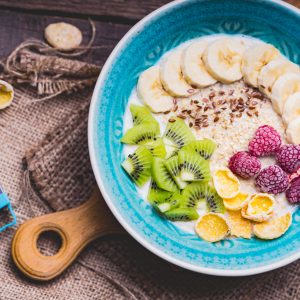Sage Advice: Expert Guidance On What And How You Should Eat

Sage Advice: Expert Guidance On What And How You Should Eat
March 11, 2020
Perhaps it’s more important than ever to think about how you get on a path toward healthier aging and a longer healthspan (and maybe even lifespan). One essential component of healthy aging that’s largely within your control? Your diet- what you eat, how much you eat and even when you eat. As an agebuzz reader, you may remember we previously published a post on the advice of Mark Bittman and Dr. David Katz, 2 food experts who conveyed what they considered to be essential advice about how you should be eating. The collaboration between these 2 highly-respected foodies led to another collaboration, one that’s just been published: How to Eat: All Your Food and Diet Questions Answered. This brand new book offers essential and scientifically-based guidance about food but with a common-sense lens for applying their lessons to everyday life. And in a recent post on Medium, they offered up some of the basic advice of their book: eat a largely plant-based diet, along with whole grains- this has been the mainstay of the human diet throughout history until the last century when modern changes in food production and options led us to eat much more salt, sugar and fat than humans were meant to ingest. While those may be the most enticing to our tongue, Bittman and Katz argue that we can employ “tastebud rehab” to steer us back to healthier eating.
Further, in another Medium post, Bittman and Katz make clear that the food we eat can have a substantial impact on inflammation, a critical factor in how healthy you age. What does their essential guidance boil down to? It’s not so much what you eat but rather what you shouldn’t eat when it comes to inflammation. Their advice? Steer clear of ultra-processed food. And how do you know what’s unprocessed versus ultra-processed? A recent post on the Harvard Health Blog lays it out: you need to focus on unprocessed, whole foods, those with just one ingredient and with their vitamins and nutrients intact, such as fresh fruits and vegetables. When you move on to processed foods, in comes the salt, sugar, and fat that Bittman and Katz warn about. And ultra-processed foods? There’s barely real food in them, despite their enticing taste. So instead of reaching for potato chips, roast a sweet potato and read more here.







